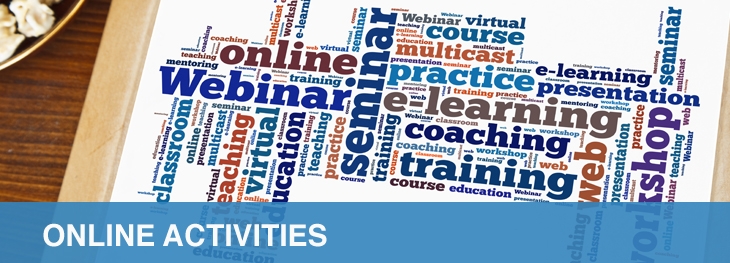
The Elearning platform proposes a number of modules with video tutorials, quizzes, glossaries and resources. The e-learning modules on Ethics & Security and Investigative Journalism were co-created during an intensive 2-days workshop in Florence by a group of experienced journalists and media experts.
Ethics & Security
- Module1: Ethics
There are ethical principles and guidelines valid for all journalists such as conflict of interest, fairness and not accepting gifts. News organisations and journalists’ associations have drafted thousands of codes of ethics listing good practices in journalism. In this module, we prefer focusing not on every single aspect, but on the ‘DOs’ and DON’Ts’ we believe are the most important for investigative journalists. - Module2: Security
Security is very important for every professional activity – not least for journalists. Journalists often report on sensitive issues or disclose actions or information that others are interested in keeping hidden. Security or safety for journalists can be divided into two different aspects: (1) physical security and (2) digital security.
Investigative Journalism
- Module1
Throughout the module, you will come across activities that you can try out in your free time, in order to get an idea of how the investigative process actually works by using concrete case study examples. Furthermore, a number of online quizzes wait for you at the end of each chapter, so that you can put what you have learned so far to the test.
Defamation
( last update: october 2014)
- Module 1 – Understanding defamation and national defamation laws
Getting to know the meaning and risks linked to the notion of defamation[1] is very important for journalists, in order to protect themselves from possible law suits as well as infringements of their right to their freedom of expression. While defamation is an important tool to protect people from false statements that damage their reputation, its criminalization may endanger journalists or their ability to carry out their work. It is therefore essential for journalists to be aware of what defamation is, what the relevant local and international laws are, and how they are linked to international standards on freedom of expression. - Module 2 – Getting familiar with international and European legal standards on defamation
Getting familiar with international and European legal standards related to defamation is essential for journalists in order to know and protect their rights, in particular their right to freedom of expression. This will allow journalists to measure local defamation laws against international human rights standards and understand when restrictions on your freedom of expression in order to protect the reputation of others may be permissible under international and European law. If you are faced with unjust defamation laws or charges and adequate protection against them is not available in your own country, you may also report cases of violations of your freedom of expression to a number of international and regional mechanisms designed to protect your rights, including your right to freedom of expression.

Guia Baggi, Investigative Reporting Project Italy (IRPI)
Merima Hrnjica, Center for Investigative Reporting (CIN), Sarajevo
Sasa Lekovic, President of Investigative Journalism Center (IJC)
Nikoleta Nakou, Donau University Of Krems
Lena Odgaard, Journalist at Danmarks Radio and Freelance Journalist at Al Jazeera Media Network
Leonida Reitano, Director of the Italian Data Journalism School
Sheila Riikonen, International Press Center – Mfa, Finland
MariaTeresa Sette, Journalist & NGO consultant
Blaz Zgaga, free-lance journalist, Slovenia
… and to Tin Geber from The engine room, the facilitator who coordinated this co-production.
